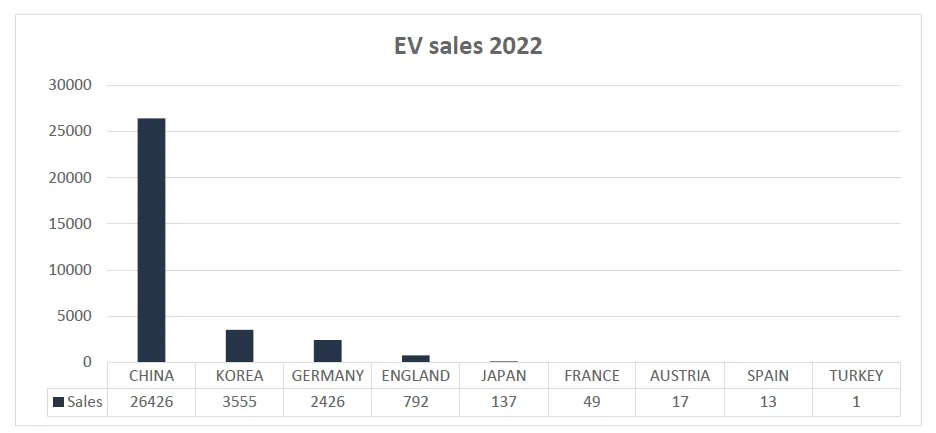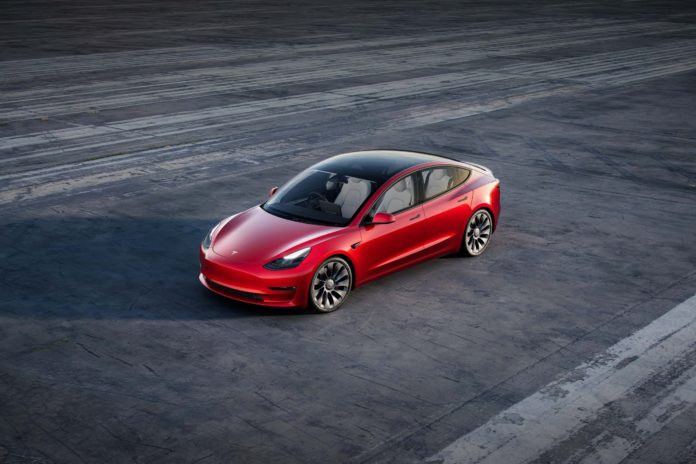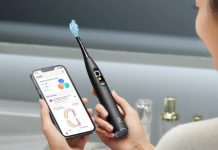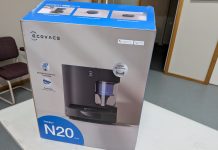Australia’s motoring industry lobby group the FCAI has today released a new and quite interesting report about zero and low emission vehicle sales. I will focus on the 100% battery electric zero emission vehicle sales.
FCAI Chief Executive Tony Weber said:
“VFACTS data is the premier source of car sales information for decision makers and commentators across Australia. This report will be vital in revealing the progress of zero and low emission vehicle penetration into Australia’s light vehicle fleet”.
“An essential part of the journey to a zero-emission light vehicle fleet is the implementation of an ambitious yet achievable fuel efficiency standard”
The growth of electric vehicles (EV) sales continues throughout 2022 as more models became available from an increasing range of brands.
This growth has been achieved in spite of production challenges primary resulting from the COVID pandemic which included shortages of microprocessors, plant closures and logistics issues.
Starting from almost nothing, last year sales of EV’s in Australia rose from less than 1% a month in January to almost 6% in December. The trend line is jagged because of shipping delays and other issues meaning some months fewer EV’s landed at our ports compared to others.
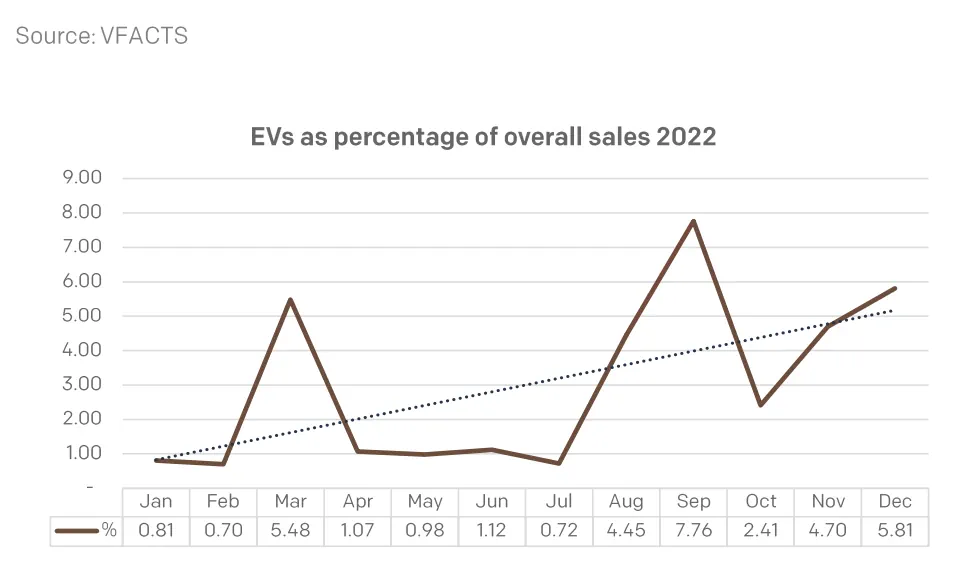
Australians love SUV’s and the increasing trend for SUV EV sales throughout last year shows this clearly.
This is one reason why whether you like them or hate them, many of the new EV models imported for sale into Australia over the next few years will be SUVs, rather than other car types like station wagons, hatchbacks etc.
Australia’s love another vehicle segment which is Utes. The reason electric utes aren’t in the stats for EV sales is because there aren’t many EV ute options in Australia yet.
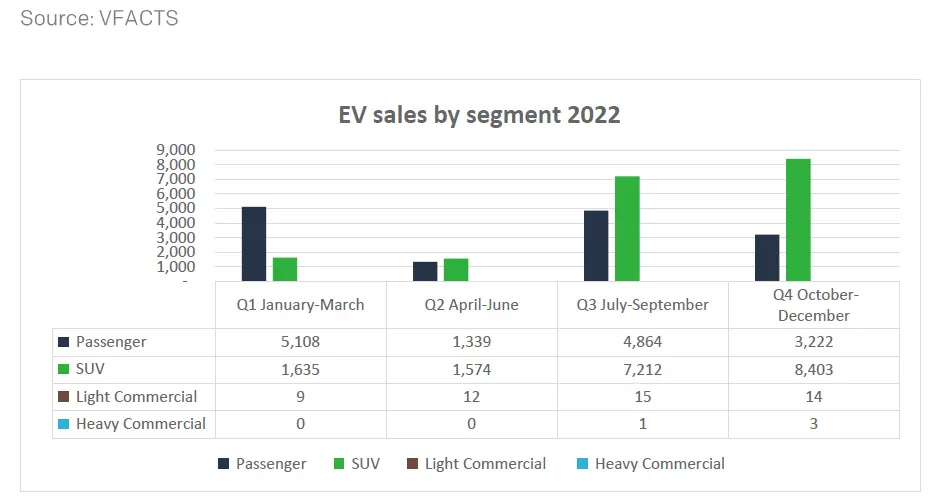
The next two graphs are not a surprise. Tesla is dominating EV sales in Australia by a wide margin with daylight second.
Several Chinese and Korean brands are doing their best to catch up. Let’s see if those brands like Kia, MG, BYD and Hyundai can bring enough cars in on ships in 2023 to reduce Teslas dominant market share.
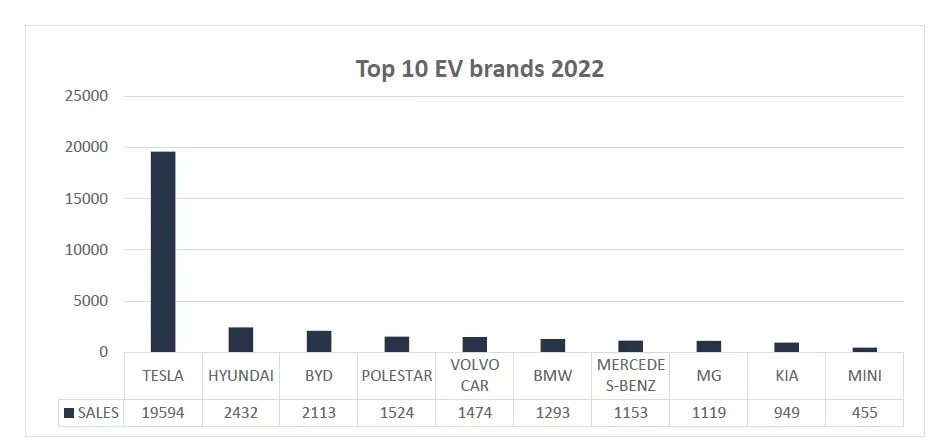
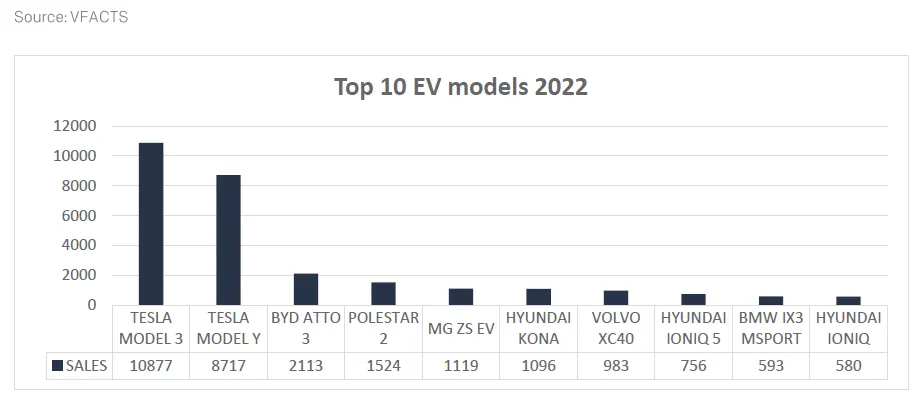
Last but not least, where are the EVs sold in Australia made? China is far in the lead because it’s where Australian Teslas are made as well as BYD, MG, Polestar, Volvo and BMW’s IX3.
The Korean car manufacturers (Kia and their minority owner Hyundai) have some award winning EV technology and design. Let’s see if they manage to get enough supply of EVs to import into Australia this year to catch up on their Chinese manufactured competitors.
